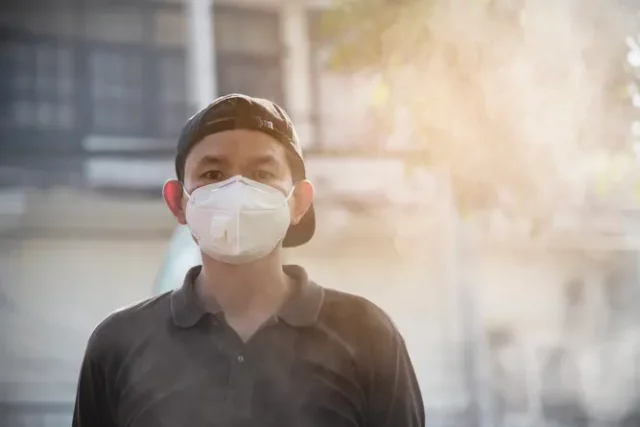As Delhi and other parts of India grapple with a severe air quality crisis, the health implications for its residents, especially children, are becoming increasingly alarming. The air we breathe plays a vital role in our overall well-being, and poor air quality can have serious repercussions. In this article, we will delve into the current air quality crisis in Delhi, its impact on health, and crucial steps individuals can take to safeguard themselves and their loved ones.
The Current Crisis:
Delhi, known for its cultural richness, is also infamous for its air pollution levels, which have surged to hazardous levels in recent times. The combination of vehicular emissions, industrial pollution, and crop burning in neighboring states has created a toxic cocktail of pollutants in the air. This grim scenario has led to a significant deterioration in air quality, with PM2.5 and PM10 levels surpassing safe limits, posing a severe threat to public health.
Impact on Children:
Children, with their developing respiratory systems and smaller lung capacities, are particularly vulnerable to the adverse effects of poor air quality. Prolonged exposure to polluted air can lead to a range of health issues, including aggravated asthma, reduced lung function, respiratory infections, and even long-term developmental problems. Moreover, studies have shown a concerning correlation between air pollution and impaired cognitive development in children.
Respiratory Disorders:
The current air quality crisis in Delhi has led to a surge in respiratory disorders, with hospitals witnessing a sharp increase in admissions for conditions such as bronchitis, asthma, and exacerbations of chronic obstructive pulmonary disease (COPD). The fine particulate matter present in polluted air can penetrate deep into the respiratory system, causing inflammation and compromising lung function.
Cardiovascular Health:
Beyond respiratory disorders, poor air quality also poses a significant risk to cardiovascular health. Fine particles in the air can enter the bloodstream, leading to a range of cardiovascular issues, including hypertension, heart attacks, and strokes. The impact is particularly pronounced in individuals with pre-existing heart conditions.
Mitigating the Risks:
While the current air quality crisis in Delhi is undoubtedly alarming, individuals can take proactive steps to mitigate the risks associated with poor air quality. This includes staying informed about air quality levels, limiting outdoor activities during peak pollution hours, using air purifiers indoors, and wearing masks designed to filter out pollutants. Additionally, supporting initiatives aimed at reducing pollution, such as promoting sustainable transportation and advocating for stricter emissions standards, can contribute to long-term solutions.
Conclusion:
The current air quality crisis in Delhi serves as a stark reminder of the critical link between air quality and public health. As we grapple with the immediate challenges posed by poor air quality, it is imperative that we also work towards sustainable, long-term solutions. By prioritizing air quality and taking collective action, we can safeguard the health and well-being of current and future generations.













































